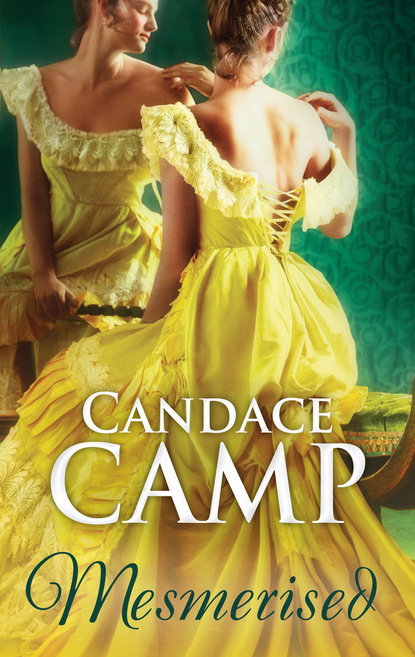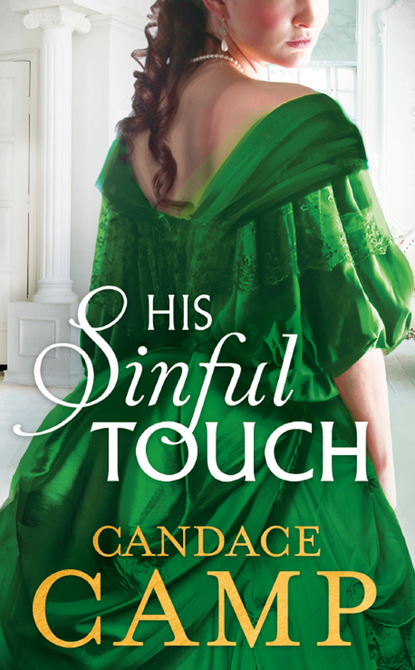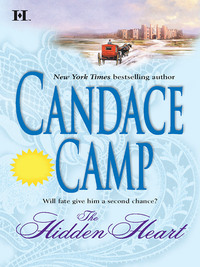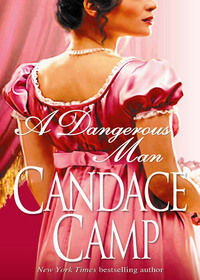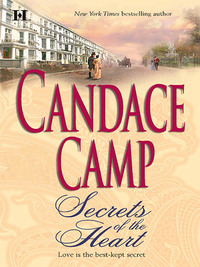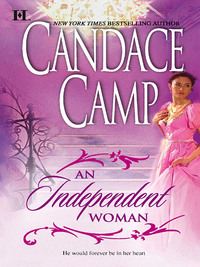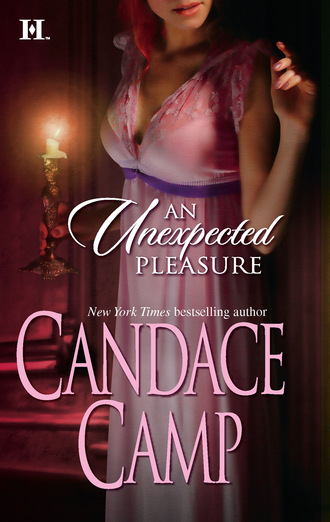
Полная версия
An Unexpected Pleasure
“The boa,” Con replied, nodding his head toward the thick snake curled sleeping in another large cage.
“Come, see the others. Here are the turtle and frog.”
Megan let herself be led from cage to terrarium to cage to aquarium, admiring a variety of fish, fowl and reptiles, and even a rabbit and a fuzzy creature that the twins informed her was a guinea pig.
“You must be very responsible,” Megan told the boys.
They looked at her, slightly surprised. It was obviously not an appellation that they were accustomed to having attributed to them.
“Taking care of all these animals,” she explained.
“Oh.” The boys glanced at one another, and Alex said with a smile, “Yes, I suppose we are, actually.”
“Did you hear that, Theo?” Con asked, turning to his older brother.
“I certainly did.” Theo smiled at Megan. “I think Mother may have found the perfect tutor for you boys this time.”
Megan felt warmed all through by Theo’s smile. She could feel a blush rising up in her cheeks, and she looked away from him quickly.
It was crazy that she should react to him this way, she thought. Bizarre. She needed to get away and think this thing through by herself. Everything was different from what she had expected. She had not really thought of what she expected the Duke of Broughton’s family to be, but certainly it was not what she had seen of them. Theo’s sister, the twins, the duchess were warm and friendly, people who, if she had met them in any other circumstances, she would have liked immediately.
Even in these circumstances, she liked them, Megan had to admit. Of course, they were not responsible for what Theo had done. It was not beyond the realm of reason that they should be bright or concerned or humorous. Any family could turn out one bad specimen. Theo was not necessarily like his family.
The problem, though, Megan knew, was that Theo did seem like the rest of his family. He was charming and handsome and possessed a smile that she could feel all through her.
That was what she had to adjust to, she knew. She had to prepare herself to deal not with a cold and obvious villain, but with a man whose wickedness was concealed beneath a pleasant, appealing mask. She should have known that it would be too easy, too simplistic, for Moreland to be the way she had pictured him. After all, had not her own brother sent them a letter shortly after he joined up with Moreland’s party in which he had declared Moreland a “capital fellow”?
The man was deceptive, and she had to guard against his deception. She had to guard against her own feelings. She could not let her liking for Theo’s family color her judgment. Nor could she make the mistake of taking Theo Moreland at face value.
To succeed on her quest, Megan knew that she must be as deceptive as Moreland himself was. She had to pretend to like him, to be fooled by his easy charm, and all the while, inside, she must be like iron.
She had been in worse situations than this, she reminded herself, had faced worse enemies. She would get through this just as she had gotten through those other investigations, with determination and good sense. She had to. She owed it to Dennis.
“I should go now,” she said, and gave the boys a smile, then turned one that was less genuine toward Theo. “I have a great many things to do in order to get ready.”
“Are you coming back tomorrow?” Alex asked.
“No. I am afraid it will have to be the day after tomorrow. There are certain tasks that I must complete first.”
Like talking to the other men who had accompanied Theo Moreland and her brother on their trek up the Amazon. She had not really expected to be hired on here—and certainly not so quickly. She would have to do her interviews with Andrew Barchester and Julian Coffey tomorrow.
She knew that once she began working at Broughton House, she would have very little time on her own to interview people. Servants rarely got more than one day every two weeks off from work, and she suspected that it was probably even more difficult for governesses, who were probably expected to be with their charges every day, even if there were no studies pursued that day. It might be somewhat better for a tutor of boys as old as the twins, who did not need constant watching over as younger children did, but she could not count on that.
The boys insisted on coming down to see her off, a fact for which Megan was grateful. She frankly did not want to have to spend any more time alone in Theo’s company. It was altogether too unsettling.
Alex and Con kept up a steady stream of chatter as they went down the stairs, eliminating any necessity for Megan or Theo to speak.
She turned to the others to say a quick goodbye at the front door. Theo extended his hand to her, and it was impossible not to take it. Megan’s breath quickened as his hand engulfed hers. His palm was warm and a little rough, surprising her. She would not have expected an aristocrat to have worked enough to form calluses. Moreland must have been involved somehow in the menial tasks of his explorations. She had always pictured him riding along on some conveyance or other, with plenty of native servants to do all the work.
Theo held her hand a fraction of an instant too long, releasing it just as her eyes flew to his in question. There was a certain heat in his gaze that sent an answering flame licking through her, but there was something else, a kind of watchfulness that reawakened the uneasy feeling she had experienced when she first met him.
The smile she gave him and the boys was a trifle unsteady. Quickly she turned and walked out the door and down the street, firmly refraining from breaking into a run. She could not shake the notion that somehow, impossible though it seemed, Theo Moreland knew who she was.
4
Theo barely heard the chatter of the twins as he stood in the doorway, looking after the retreating figure of Megan Henderson. Who the devil was she?
Con and Alex took off at their usual pace back up the stairs, and Theo turned and strolled through the hallway and out onto the terrace. He took the wide, shallow steps down onto the flagstone path that led to the arbor.
He stopped at the place where he had caught his first glimpse of Miss Henderson and stood, remembering the moment.
Recognition had jolted through him when he saw her, stopping him dead in his tracks. He could not believe it, and yet the fact of it was looking straight at him. Miss Henderson, the twins’ new teacher, was the woman who had come to him in his dream years ago. The woman who at the time had seemed so real to him, but whom he had come to realize must have been a figment of his imagination, a product of his fevered, delirious dreams.
However, now he knew that his assumptions were not true. The woman was very real indeed…and about to be living in his own house.
Theo shook his head in confusion and walked over to the arbor where his mother and the tutor had been sitting. He sat down in the chair Miss Henderson had occupied. The odor of the first blooming roses mingled with the subtler, faintly lavender scent of Megan’s perfume.
He had forgotten how beautiful the woman had been—no, not beautiful, exactly, in that sort of perfect, stunning way that his sister Kyria was beautiful. No, this woman was intriguing, enticing, with a soft, curvaceous body hidden and restrained by the plain dark clothes she wore, her hair warmly cinnamon in color and curling, seeming about to escape from its pins at any moment. And her smile…
Theo let out a groan, sinking his head onto his hands. He remembered that smile perfectly—the soft, wide mouth with its plump lower lip, slightly indented in the center, quirking a little to one side in an enchanting, eminently kissable way, her mahogany-colored eyes warm and inviting.
But she wasn’t real. She was a dream! So how had she turned up here in the Broughton House garden?
It had been ten years, and he had been terribly ill at the time, Theo reminded himself. The odds were he simply did not remember exactly what the woman in his dream looked like, and when he saw Miss Henderson, she had resembled the woman enough that his mind attached the teacher’s face to the image he had seen.
Even as he came up with the logical explanation for the odd occurrence, Theo knew that it was not so. That dream was as real, as vivid to him, as it had been ten years ago. He had only to close his eyes and he could remember the slab of stone hard beneath his body, and the sweat slicking his flesh and dampening his hair. He had been burning up with fever, his mouth constantly dry and parched no matter how much they poured that drink down his throat. The air had been stifling, heavy with the smoke from the incense burners on either end of the slab on which he lay. He remembered the low, rocky ceiling that arched over him, the rough walls, damp with the moisture of the cave.
He remembered, too, the dark, silent girl who had tended to him, wiping the sweat from his face and urging the drink on him, the metal of the goblet cool against his fevered lips. Her low voice had chanted in some foreign tongue. Dennis had been there, too, most of the time, talking to him, urging him to return from the netherworld in which he floated.
But neither Dennis nor the black-haired maiden had been there when the woman had come to him. His fever had been burning more hotly than ever, and he had been assaulted by hallucinations—visions of animals and birds and strange, monstrous people had danced around him. And he had sweated and shivered, aware deep inside that life was slipping from him.
Then she had appeared at the end of the slab, a wondrously normal, heartening sight in his confused world. A plain white gown had fallen straight from her shoulders, and her hair had tumbled down around her shoulders, soft and riotously curling, a warm reddish-brown, slightly darker in the flare of the torchlight than it had looked today in the sun of the rose garden. She had been young, her cheeks pink with the blush of youth.
He had gazed at her then, having never seen her before, yet somehow viscerally knowing her, with an awareness that went much deeper than mental understanding. They were connected in a deep, intense way that he could not have explained yet he understood with every fiber of his being.
“You must not die,” she had said to him, and walked around to stand beside his head.
He had looked at her, unable to speak, too weak even to raise his head. She had smiled down at him then, a wonderful, inviting smile that brought out the hint of mischief in her sparkling brown eyes.
“I won’t let you,” she went on. “Do you understand? You cannot die yet. I am waiting for you.”
Then she had bent and softly kissed his lips. He could still recall the butterfly-soft flutter of her mouth.
Theo had spoken of his vision to no one, not even Dennis. It had been too real and at the same time too bizarre to share with anyone. He could not explain his certainty that he knew the woman even though he had never seen her before. Nor did he want to share the intense flash of hunger that had darted through him at the sight of her.
It was the same stirring of desire that had arisen in him today when he first saw Megan Henderson. There was something about her, something that went beyond all notions of beauty or desirability, to an attraction so deep and elemental that it seemed a part of him. He had not felt anything like it with any other woman.
He remembered what his brother Reed had told him about the first time Reed saw Anna, the woman who would eventually become his wife. It had been like a blow to the chest, Reed had said, and Theo had thought the description overly dramatic. Yet today what he had felt had been as strong as that, as intense, though it had been more of a jolt all through him rather than a blow to his heart.
He had to wonder what that meant about the twins’ new teacher. Not, he felt sure, that he was going to marry the woman. He had realized some time ago that he was apparently missing the romantic streak that seemed to run through the rest of his family. His parents, his brother, his sisters—even his twin—all had married for love. Theo, however, was sure that he had never felt the emotion. He had been attracted to many women over the years, had even indulged in affairs with those who were free and willing to engage in such relationships, both here in London and in some of the other places he had traveled.
There had been one woman—the clever, ambitious owner of a millinery store—with whom he had kept company happily every time he returned to London. That relationship had lasted almost three years, off and on, and had ended amicably when he’d returned from his trip to China to find that she had entered into a more permanent relationship with a man who stayed home. He had enjoyed her company, had found pleasure in her bed, yet he had never felt the sort of heart-thudding joy upon seeing her that he had witnessed on Kyria’s or Olivia’s faces when they saw their husbands.
He would have dismissed such happiness as a feminine trait had he not seen the same sort of besotted expression on his father’s face every time he’d looked upon his duchess during the last thirty-four years. The fact was, obviously, that the Morelands loved deeply and for a long time—except, apparently, for him.
So he felt sure that what he had experienced today was not love at first sight. No, it was more likely astonishment at seeing his long-ago dream suddenly come to life in his mother’s rose garden.
Still…whatever it was, he knew it was something that he had to explore. He had to know why this woman was here in his life ten years after his “vision” of her. He had to understand that strange, intense feeling that had gripped him.
Theo remembered his reluctance to leave London despite the restlessness that had plagued him, as well as the odd sense of waiting that he had experienced. Was Miss Henderson the reason he had been “waiting”? And how the devil had he known it?
Theo stood up, shaking his head slightly, and started back into the house. In the midst of all these speculations, there was one fact he knew for certain: there was no way he would be leaving London any time soon.
He trotted up the steps to the terrace, unaware that he was whistling a merry tune.
MEGAN WENT TO CALL on Andrew Barchester the following day, accompanied by her father and sister. She would have preferred to conduct the interview alone. Much as she loved her father, she was accustomed to doing her work by herself. Her father was all too likely to take control of the interview and send it shooting along some strange pathway. Nor did she really think that Deirdre was likely to be able to give them any pertinent information derived from the “feelings” Frank Mulcahey was sure Deirdre would receive on seeing this man, who was one of the last to see their brother alive. She would have liked to spare Deirdre the pain of hearing firsthand about Dennis’s death. Megan was accustomed to hearing and seeing gruesome things in the course of her work; Deirdre was not.
Her father, however, had been insistent on accompanying her. And Megan could not deny that it would appear more natural for him to be the one making inquiries of the man who had told him of his son’s death. Nor could she keep Deirdre from going along, as her sister seemed determined to do.
She would simply have to work around her family’s presence, she decided, and hope that Deirdre did not hear anything that would disturb her.
They climbed the steps to the front door, and Frank used the heavy brass knocker. Moments later a servant answered the door, and Frank requested to see Andrew Barchester, explaining who he was. The footman, looking rather dubious, replied that he would inquire if the master was home and started to climb the staircase at a majestic pace, leaving the three of them standing in the entryway.
“What a beautiful home,” Deirdre murmured, looking around her.
It was, indeed, quite lovely, and it was clear that no expense had been spared in creating the house. However, to Megan’s eyes, it did not compare in magnificence to the stately Broughton House. While expensively built, there was a certain overdone quality to Barchester’s house, and a newness that bespoke riches recently acquired. The elegant Queen Anne–style Broughton House, however, had a sort of lived-in air, a casual acceptance of its wealth that let one know that this house, this family, had been important long before any of its present occupants were born.
“Is Broughton House this elegant?” Deirdre asked.
Megan nodded. For some reason, which she had not herself examined, Megan had not told her father and sister much beyond the bare facts of her meeting with the duchess yesterday. She had not told them how engaging the twins had been, nor how easy it would be to like the Duchess of Broughton.
As for her meeting Theo Moreland, she had not even mentioned it. She knew that they would not understand the strange feeling that had assailed her when she’d met the man—indeed, she had not even understood it herself! Her father, she knew, would have lectured her about how dangerous it was to take a man like Moreland at face value. He would have pointed out that the man was deceptively charming, so she must keep her guard up at all times. She was fully aware of these arguments, as she had repeated them to herself all the way home. She did not want to have to listen to them from her father, as well.
She would deal with the unlikely tug of attraction she had felt for the man. She was certain that it had been a momentary aberration, a result of her surprise at meeting the man when she had not expected to, had not prepared herself for it. Tomorrow, when she returned to the house, she would have herself better in hand.
Her thoughts were interrupted by the sound of footsteps on the stairs, and she turned to see the footman coming back to them.
“Mr. Barchester will receive you,” he said, looking faintly surprised, and led them up the stairs and into a spacious drawing room.
A man was standing by the windows, looking out, and he turned at their arrival and came toward them.
“Mr. Mulcahey,” he said, reaching out to shake Frank’s hand. “I am Andrew Barchester. I am so pleased to meet Dennis’s father.”
Mr. Barchester was a pleasant-looking man in his mid-thirties, with a high, wide forehead and even features. His eyes were a pale gray, and his hair was blond, and he was handsome in a nondescript sort of way.
“Mr. Barchester,” Megan’s father replied, and introduced Megan and Deirdre to him.
Barchester smiled at Megan and murmured a greeting, but when he turned to Deirdre, Megan noticed that his hand lingered on hers a trifle longer and his eyes took on an appreciative gleam. It seemed that Deirdre’s fragile beauty was once again having its usual effect.
“What brings you to London, Mr. Mulcahey?” Barchester asked, showing them to a blue sofa and chair, and taking his own seat across from them.
“We’re here to find out whatever we can about my son’s murder, Mr. Barchester,” Frank replied.
They had had much discussion the night before over exactly what they should tell Barchester. Frank, not one to trust any Englishman completely, had been concerned that the man might balk at their intent of bringing a fellow Englishman to justice, and it was always Megan’s policy in researching her stories to tell everyone as little as she had to in order to get them to talk. That way, she felt, there was less chance of their stories being influenced by her considerations. Deirdre, however, had been of the opinion that if Barchester did not realize the extent and gravity of their interest, he might very well smooth over details or even conceal some matters in order not to cause them distress. It was, she added with a significant look at her sister and father, something with which she had had a good deal of experience. Megan and her father had had to agree with the logic of Deirdre’s argument, and they had agreed to be candid with Barchester.
Now Barchester stared at Frank Mulcahey for a long moment. “I will be happy to tell you everything I know, of course.” He paused. “But I’m not sure I know exactly what you mean—are you hoping to do something about it? I mean, um…”
“I’m not going to take vengeance myself, if that’s what ye mean,” Mulcahey assured him. “Sure, and I’d like nothing better, you understand. But I’ve promised the girls I’ll not harm the scoundrel. Still, we mean to bring Moreland to justice.”
“Mr. Mulcahey…believe me, if there were any possibility of that, we would have done it ten years ago, when Dennis was killed.” He frowned. “But it happened in the wilds. I’m not sure even what country we were in—Peru, perhaps. We had followed the Amazon River all the way up into the mountains. Where we were was uninhabited. And even when we returned to civilization, it was a foreign country, and we could not prove—I mean, we could not even speak the language, and it would have been just our word against his. Lord Raine’s family is very old and wealthy. His father is a duke. And they are related to scores of influential people in one way or another. The government would have put such pressure on the local police that I am sure they would have let him go. And what government could we have gone to, anyway? We went back down the Amazon into Brazil before we reached a city of any size.”
“Mr. Barchester, we are implying no wrong on your part, I assure you,” Megan put in quickly. “Pray do not think we feel anything but gratitude to you for letting us know what happened to my brother.”
“Aye. It’s no slight to you, lad,” Frank agreed. “It is just that we need to know. We need to do everything we possibly can for Dennis.”
Megan stiffened, afraid that her father would launch into the story of Deirdre’s visitation from Dennis. That, she was sure, would result in Barchester’s being certain that they were quite insane. However, her father said nothing further and she relaxed.
“Thank you,” Barchester said. “I am glad you feel that way. But it was not concern for myself that prompted me to speak. I was merely trying to explain how unlikely it is that you will receive any satisfaction out of this inquiry. We are in England. The crime did not even occur here. And it has been ten years since it happened. Besides, there is still the matter of lack of proof. It is one man’s word against another’s. And when one of those men is the eldest son of a duke…well, I can envision no way that you can receive satisfaction.”
“He doesn’t have to be tried in court,” Frank replied. “It’s impossible, I know. It will be enough for me if we can make people aware of what he has done.”
“Newspapers have a powerful impact, Mr. Barchester,” Megan told him. “I know. I work for one.”
Barchester’s jaw dropped. “You? You’re a—”
“I’m a reporter. I have written stories that revealed terrible working conditions in factories, political corruption, the plight of slum-dwellers. I didn’t have to go to court. Exposing their practices to the general public set demands for reform in motion.”
“I—I see.” Barchester still looked faintly shocked—more, Megan suspected, at the revelation of her job than at their plan to expose a member of the British aristocracy.
“I will dig into it, just as I do with any other story, and when I have found enough evidence, I can write a story. My newspaper will publish it, and I suspect there will be British papers that are eager to put out the story, as well. Nothing sells like scandal among the wealthy—I would imagine it is even truer when that person is not only wealthy but also titled.”
“No doubt you are right.” He hesitated for another moment, then said, “Well…um…let’s see…where shall I start?”
“Why don’t you begin by explaining to us how you and Mr. Moreland—I mean, Lord Raine—joined up with Dennis and his group?”
“Of course.” Barchester nodded. “I had not known Lord Raine before we went to Brazil together. Though we were of an age, we did not exactly move in the same circles. My grandfather made his money in trade, you see.”




